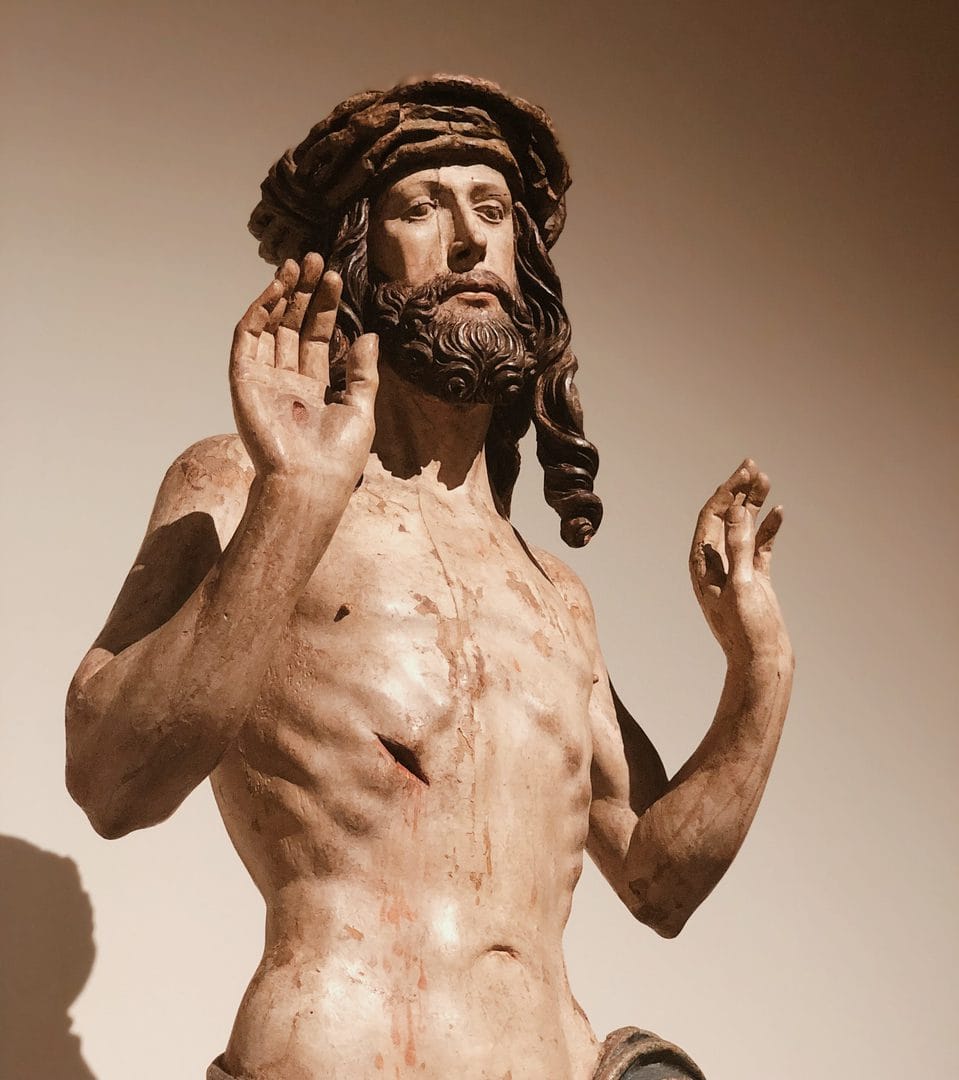Would you be surprised if I told you that one of the most Christlike figures in the Bible is a prostitute?
It’s true. The story is found in 1 Kings 3:16-28. It’s usually tilted “Solomon’s Wisdom in Judgment,” but I think that title doesn’t get to the point. A better title would be “The Loving Prostitute.” Or maybe even better, “The Love of God Shines through a Prostitute.” Here’s the gist of the story:
Two prostitutes went to a king named Solomon. The first woman said that the other woman killed her own baby as she slept at night by rolling over him. She then says that that the woman woke up in the middle of the night, saw that she had killed her baby, and then swapped their babies. So, when the prostitute woke up, she found that a dead baby was lying next to her. But when she examined the dead baby, she realized that it didn’t look like her son. It was the other prostitute’s son.
But then the second prostitute replied that in fact it was the first woman who rolled over and suffocated her child. She woke up in the middle of the night and realized that she killed her baby. She then snuck over and swapped her dead baby for the living baby. When the second prostitute woke up, she realized there the baby next to her was dead, but that it didn’t look like her son. It was the other prostitute’s son.

Solomon listened to the two women tell their stories, but he didn’t know what to do. The two women had the exact same story and he didn’t know how to solve the problem. So, what did Solomon do next? He asked for a sword.
That escalated things quickly.
Solomon replied, “Divide the living boy in two; then give half to the one, and half to the other.”
One of the prostitutes pleaded, “Please, my lord, give her the living boy; certainly do not kill him!”
Surprisingly, the other prostitute demanded, “It shall be neither mine nor yours; divide it.”
Solomon knew then that the baby’s mother was the one who wanted to save the child.
The real mother is willing to sacrifice herself and her relationship with her child in order to save him.
That’s a Weird Bible Story. Why Should I Care?
Yeah, it’s a really weird story, but René Girard’s mimetic theory helps us understand why it’s so important.
First, did you notice how the two women say the exact same thing? They mirror each other as they accuse the other of killing their own baby and swapping them out. They are both prostitutes who mimic each other’s words.
Girard says about this story in his book Things Hidden Since the Foundation of the World that, “The symmetry [between the women] is obvious, and it represents is the very essence of human conflict…”
Have you ever noticed that when two people are in a big conflict, they have a strong tendency to behave in very similar ways? They think they are dramatically different, but they are both run by the same sense of rivalry and hostility. The more they stay in the conflict, the more their animosity tends to escalate and they make the same accusations against each other.
In fact, whenever we get in those kinds of conflicts, the object fades from view and you just want to defeat the other person. The old story of the Hatfields and McCoys still resonates with us because we know it’s true. We don’t remember or care about whatever we are fighting about. The object fades from view. All that matters is that we are fighting.
And so the one prostitute says, “Go ahead and kill it. If I can’t have it, neither can she!”
Notice that for this woman, the baby is not even a baby anymore. The baby is an “it.” The object that is the baby has totally faded from view and so she is willing to violently sacrifice “it” so that her rival can’t have it either.
But the true mother is willing to give up everything to save the baby. She gives up her relationship with the baby in order to save him. She even risks her own life, for if the king catches her lying about this, he could have her killed. But that doesn’t matter to the mother. What matters is that her son lives.
The Olive
Branch
Take A Breath with Us
Our weekly newsletter creates a space to take a breath. Once we slow down, we can see the way desire, imitation, and conflict operate in our lives and in the world, and begin to create peace. In addition to the newsletter, you will receive the free "Unlearn the Bible" ebook when you subscribe.
The Christlike Prostitute or the Prostitutelike Christ
The real mother is willing to sacrifice herself and her relationship with her child in order to save him. She is able to do this because while she was in the conflict, she was able to keep the object at the center of her attention. She was not distracted from her son by a rivalry with the other woman. Her goal was not to defeat the other woman. Her ultimate goal wasn’t even to keep her relationship with her son. Her ultimate goal was for her son to live.
Girard says that this prostitute is a Christlike figure. In fact, Girard says that “She offers the most perfect figura Christi that can be imagined. Christ agrees to die so that mankind will live.”
I wonder if the opposite is also true. I wonder if Christ is the perfect mother prostitute figure. After all, as a good first century Jew, Jesus would have heard this story. Jesus was formed by this type of story. The God of love was so present with the prostitute that she was able to sacrifice her own desires, her own desire to defeat her rival, so that her son could live.

There are similar anti-sacrificial stories in the Hebrew Scriptures. You might think of Abraham and Isaac. Abraham heard God calling him to sacrifice his son Isaac. But right before Abraham dropped the knife on his son, God stopped him from killing Isaac. The point of that horrific story is that God stopped the sacrifice. God doesn’t want human sacrifice. This is the beginning of the Jewish move away from sacrifice.
By the time we get to the story of the prostitutes, God is entirely out of the picture. It’s Solomon, in his wisdom, who suggests the human sacrifice. Couldn’t Solomon have found another way? Couldn’t he have asked the women some questions? Why didn’t he go the scene of the crime to investigate?
No matter. The ultimate point of the story is to show the movement away from human sacrifice that we witness in the Hebrew and Christian scriptures – God has nothing to do with sacrifice. The violent sacrifice of another is a purely human act that is devoid of the true God.
We see the movement in the Gospels. Nowhere do the Gospels say that God demanded his Son to be sacrificed. Rather, similar to Solomon’s suggestion to sacrifice the boy, it was humans who demanded to sacrifice Jesus. The political and religious elite, along with a crowd of folks, demanded that Jesus be crucified.
And Jesus, formed by the love and faith of a prostitute some 900 years before him, chose a nonviolent solution. He decided to be the perfect figura prostitute who gives up her life so that another might live.
That might sound scandalous to some. If so, Jesus might scandalize them more. After all, he did say to some highly religious people who thought they were better than others that, “…the prostitutes are going into the kingdom of God ahead of you.”

